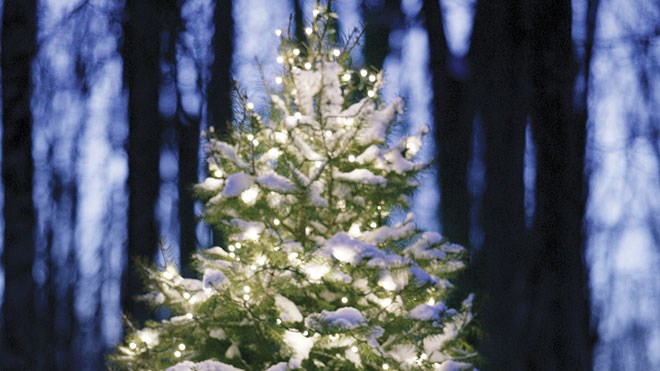There’s a debate going on at my house. You might be having the same one at yours. The debate is this: Is it less Christmas-y without snow?
I know where I fall in this — winter and I have achieved a kind of seasonal détente: I don’t complain too much and it doesn’t force me to shovel too often. Really, the easing of our strained relations is kind of one-sided. Mostly, it involved me not being such a baby about it, because (duh) winter arrives no matter how much I complained.
The rest of my family relishes the crunch of fresh snow beneath their boots (or, in my son’s case, his running shoes because, at 14, he’s willing to risk frostbite for fashion). They revel in a bracing winter wind that turns eyelashes frosty and cheeks rosy.
So back to the debate. Is it still Christmas without snow? Obviously, the calendar doesn’t care about the weather, so Dec. 25 is coming regardless of how we feel about it. But Christmas isn’t simply a day on the calendar, is it? There’s more to it than that. Christmas is as much a feeling as a day, as much a point of view as an event.
An atheist I may be, but that doesn’t mean the holiday is somehow less important to me for my lack of spirituality. Just because I don’t happen to believe in a god, Jesus Christ or Dec. 25 as marking the literal birth of a man touched by divinity, doesn’t mean Christmas is meaningless for me or for my family.
That’s part of what makes Christmas so special — no matter what you bring to it in terms of your belief, you can get something out of it. In the gift-giving tradition of Christmas is a simple message that people of any faith can get behind: In the act of giving, we prove our humanity.
I think I just heard a “huh?” somewhere out there. Let me explain. In Christmas, we find one of the great contradictions of our species: Individual survival requires a degree of personal selfishness, but the survival of our species requires a healthy measure of selflessness.
Humanity — despite lacking great strength or fearsome natural weapons like claws and fangs — became one of Earth’s most successful creatures in spite of our weaknesses. Our evolutionary success lies in our ability to co-operate, to sacrifice for the good of the whole.
We’re still here because we found a way to project our self-centredness outward to include our family, than our neighbours, than our tribe and country. Most of the time, we can extend it to all of humanity (and then that guy who cuts in line at the drive-thru turns up and spoils it for everyone).
Christmas reminds us that it’s OK to be a little selfish, but it’s more important to look beyond our own needs; that when we look out for our neighbour, we’re really looking out for ourselves; that the act of giving is also, almost magically, the act of receiving. This is true for believers and non-believers alike.
It could be Syrian refugees, your elderly neighbour, your spouse and kids — it doesn’t matter. The relationship between those who give and those who receive is symbiotic, mutually beneficial.
So give. Give gifts, if you must, but give smiles, too. Hold a door, buy a coffee, do something, no matter how small, to make someone’s day a little brighter. That little warm glow you get inside is the selfish warmth of charity. Nurture it and the world will be a little warmer, too.
Merry Christmas to each and every one of you — snow or no snow.
Mark Gentili is the managing editor of Northern Life and NorthernLife.ca.
Join Sudbury.com+
- Messages
- Post a Listing
- Your Listings
- Your Profile
- Your Subscriptions
- Your Likes
- Your Business
- Support Local News
- Payment History
Sudbury.com+ members
Already a +member?
Not a +member?
Sign up for a Sudbury.com+ account for instant access to upcoming contests, local offers, auctions and so much more.
